Dell EMC Launches EPYC PowerEdge Servers, AMD Shares Benchmarks
AMD's return to the data center took a big step forward today as Dell EMC announced that it is bringing three EPYC-powered PowerEdge servers to market. AMD also provided us with updated EPYC performance projections compared to Intel's Xeon Scalable processors.
AMD has already secured several big wins with hyperscale cloud service providers like Baidu and Azure. Several ODMs have also developed EPYC servers, but OEM systems help broaden the platforms' appeal to a larger range of enterprise customers. HPE released its lineup of dual-socket ProLiant DL385 Gen 10 servers last year. Adding Dell EMC as yet another OEM system provider should extend EPYC's reach further. Most notably, Dell EMC's new models are the first single-socket EPYC servers on the market with enterprise-class features.
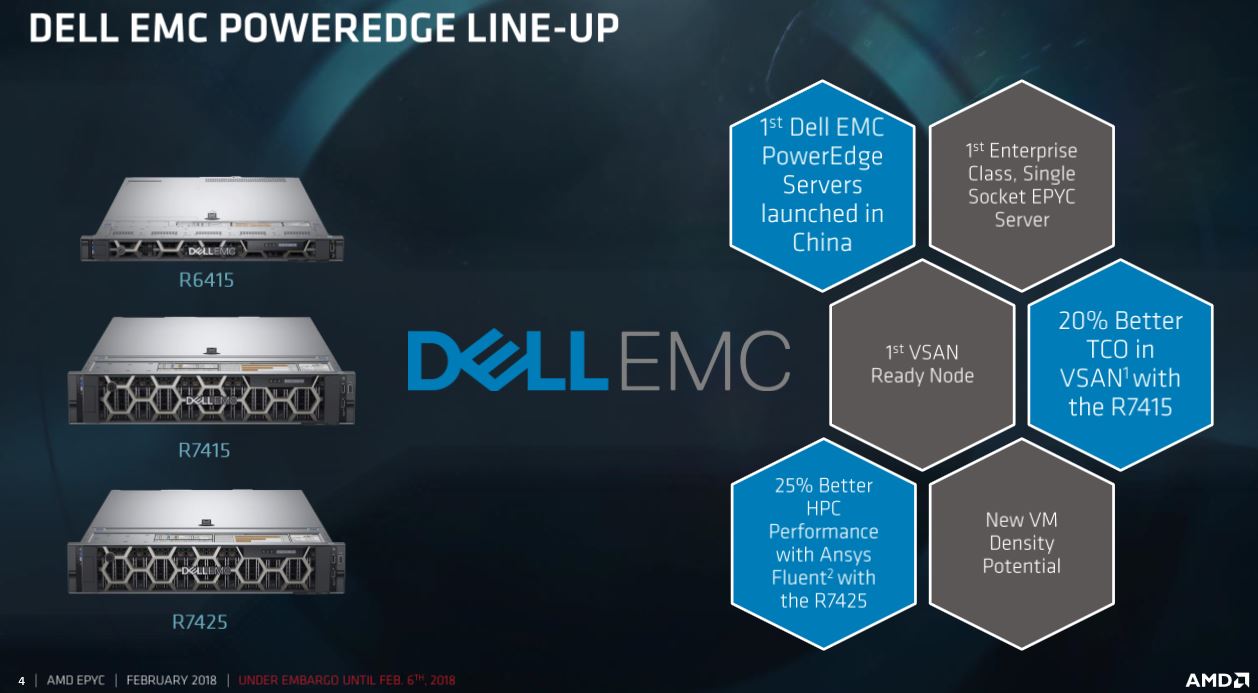
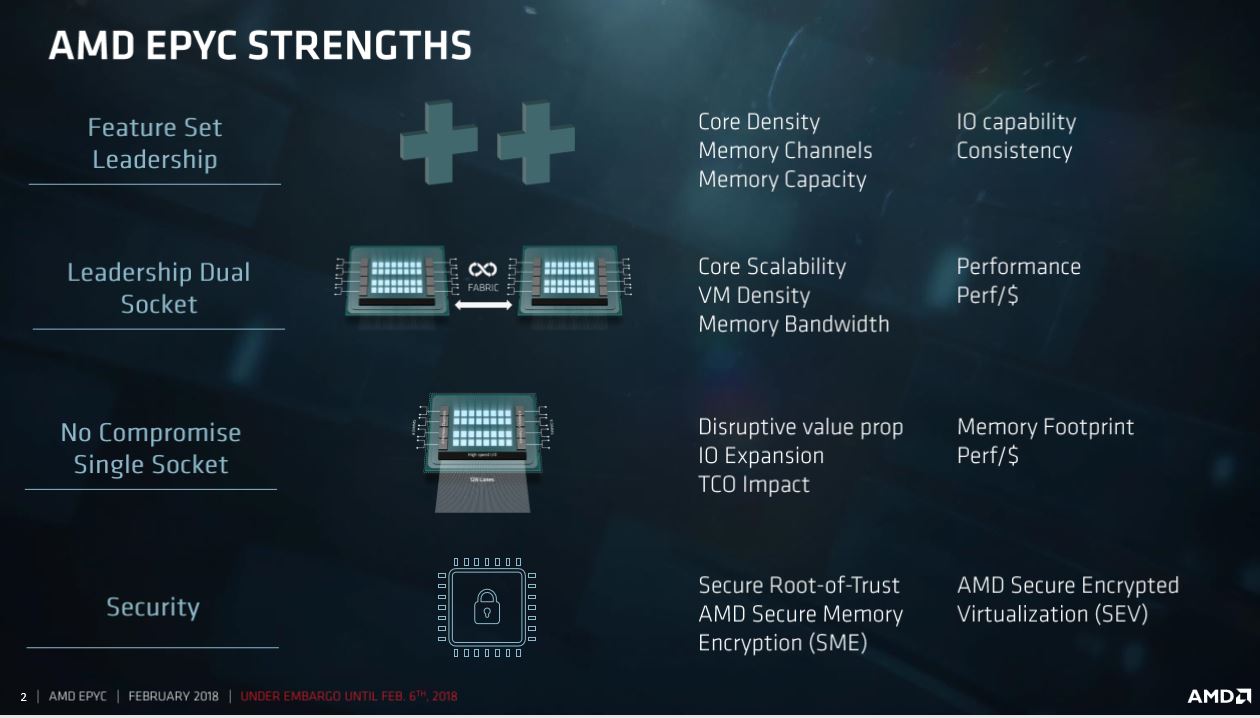
AMD feels that it has a compelling value story in the single-socket server market where EPYC's expanded PCIe and memory connectivity, not to mention pricing, provides it tangible advantages over competing Intel servers. The PowerEdge servers include the full range of Dell EMC's management suites and VMware VSAN certification. EPYC's 128 PCIe lanes provide plenty of legroom for NVMe devices, so VSAN certification plays well with EPYC's copious connectivity in single-socket servers.
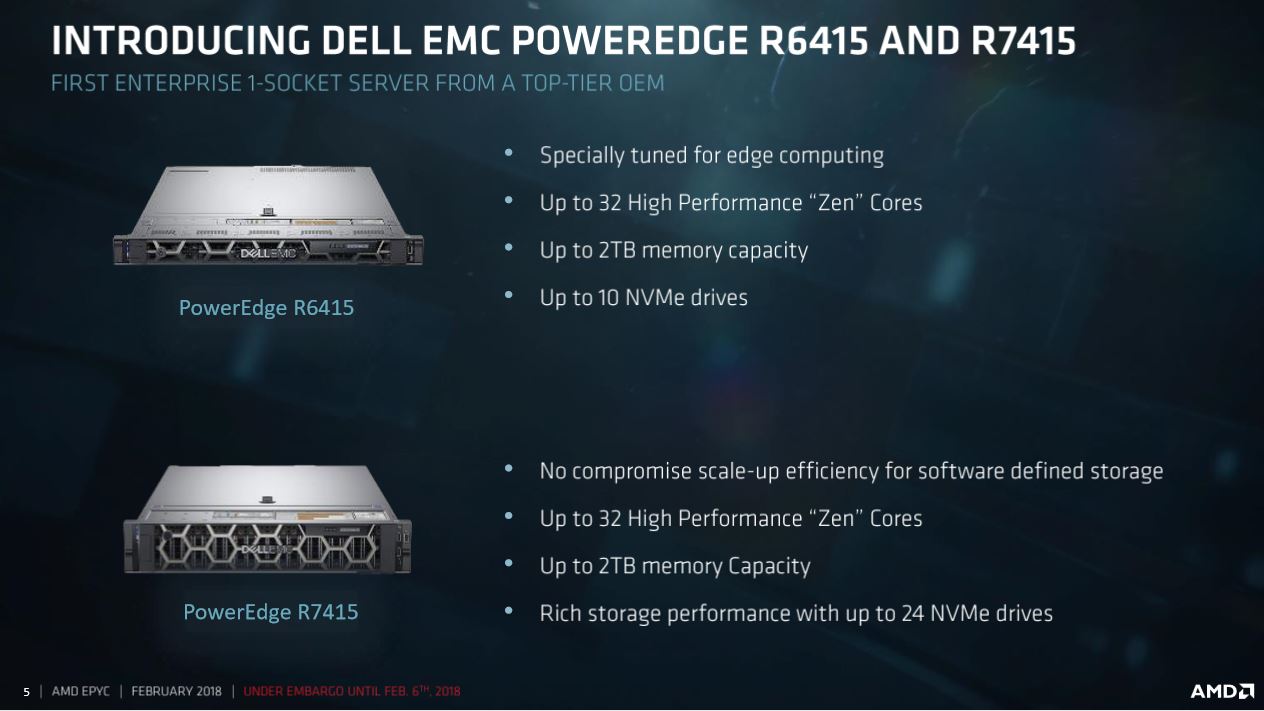
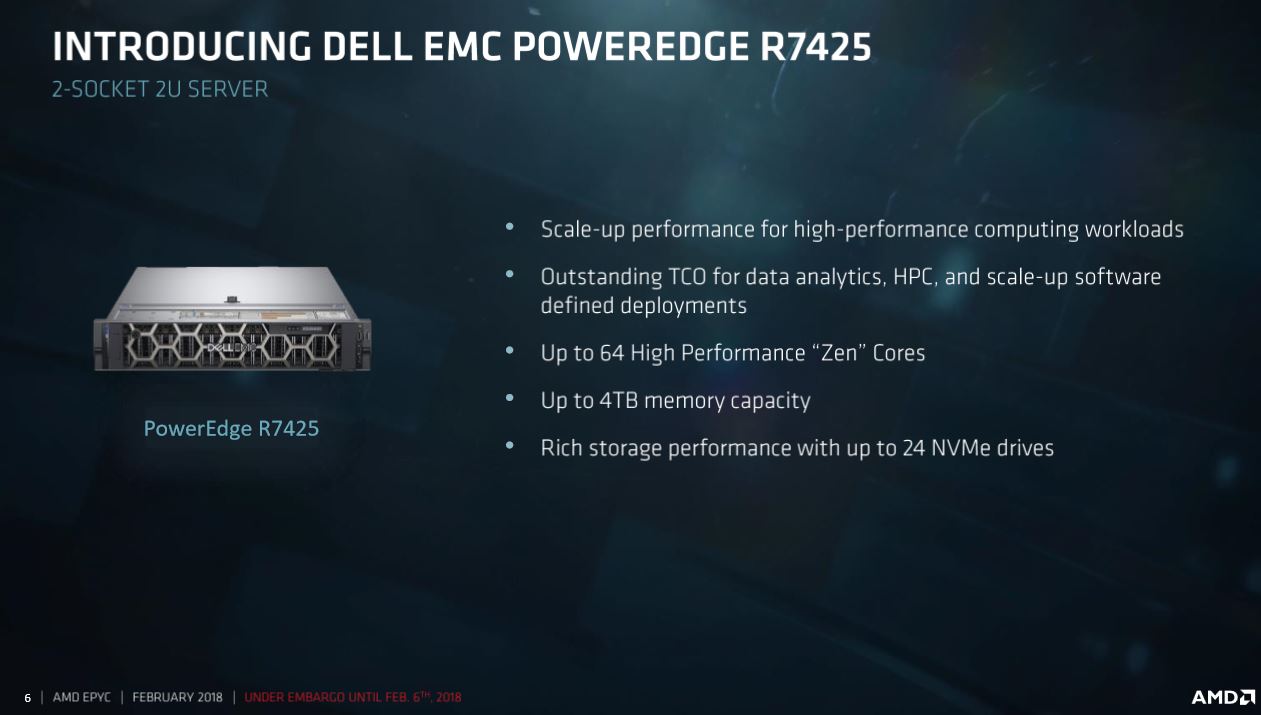
The PowerEdge R6415 is a 1U single-socket platform that supports up to 10 NVMe drives. This model is designed for storage on the edge. Servers deployed in remote locations have higher security requirements, which meshes well with EPYC's secure virtualization and memory encryption features. The PowerEdge R7415 has the same basic fundamental design but expands to a 2U chassis that supports up to 24 NVMe drives and three double-width GPUs.
The Dell EMC PowerEdge R7425 is the dual-socket 2U workhorse of the group. This server supports up to 4TB of memory and up to 64 cores with the high-end EPYC processors. That's a good fit for virtualized environments and analytics workloads, among others.
The blockbuster Dell and EMC merger was one of the largest tech mergers in history, and the combined company recently took over as the leading server supplier. The company has a global supply chain and support system for the new PowerEdge 14G servers that extends into China, which will help address one of the fastest growing countries in the world. Dell will also sell the EPYC servers through its normal channel providers, website, and direct sales teams.
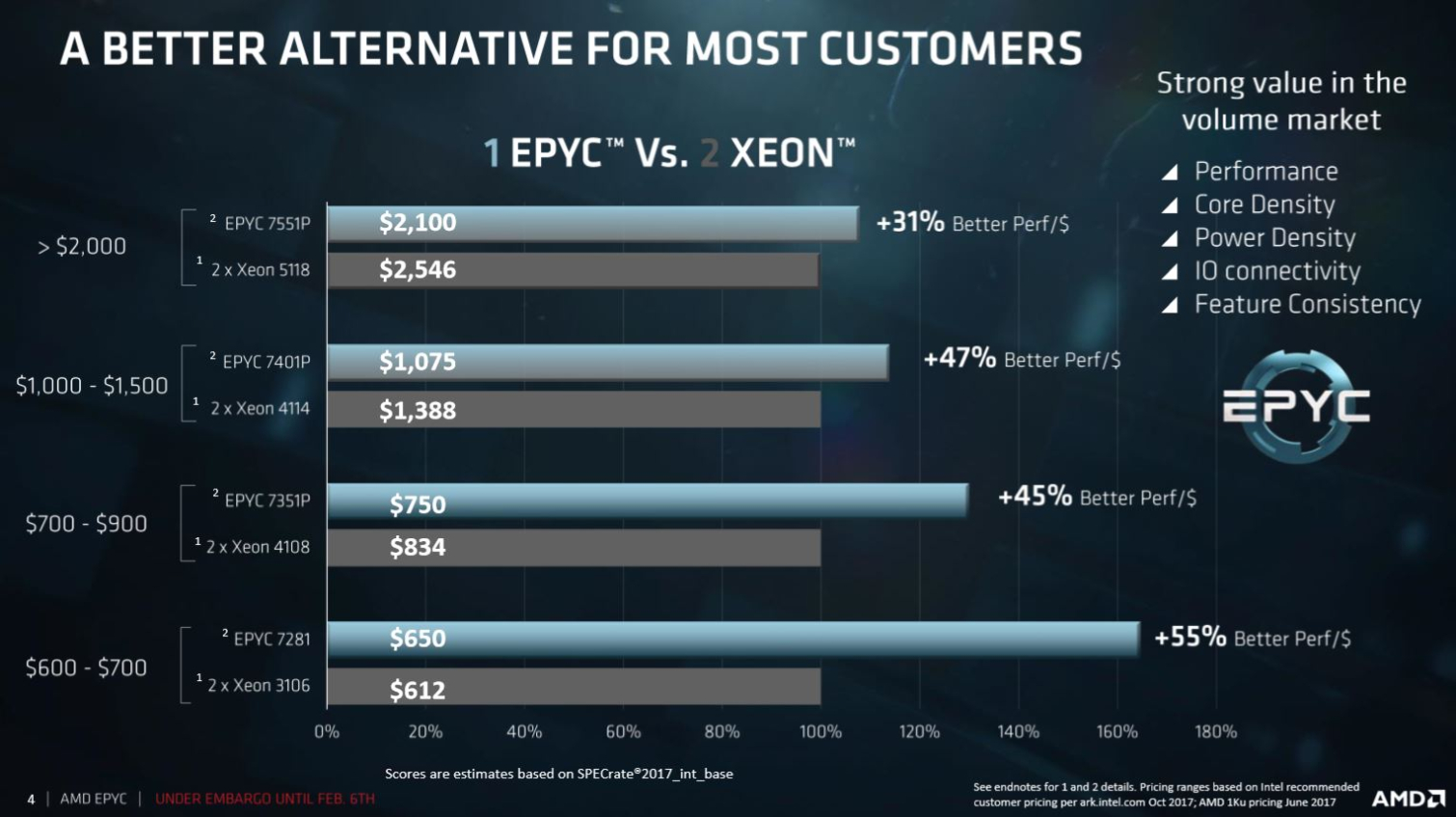
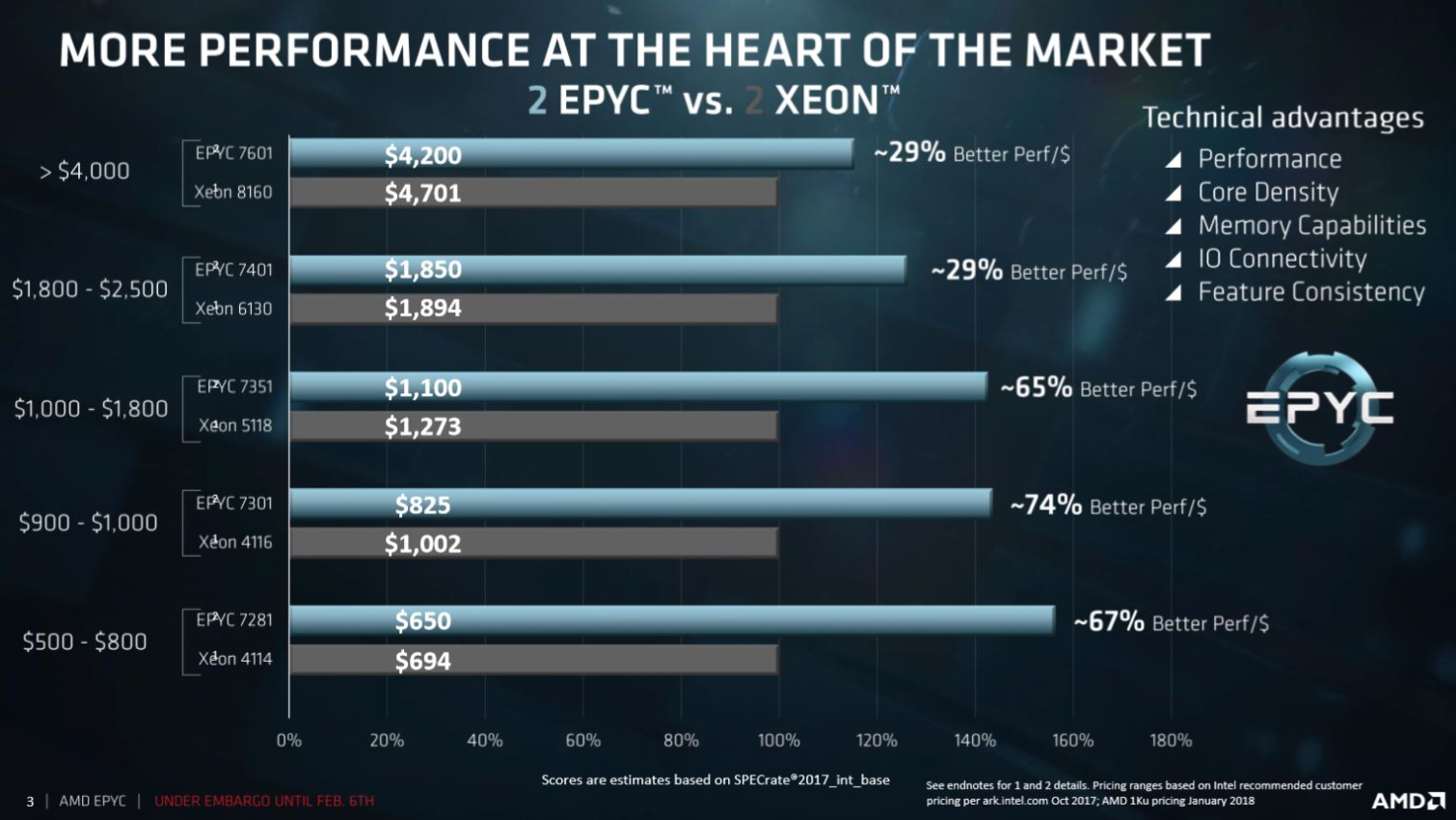
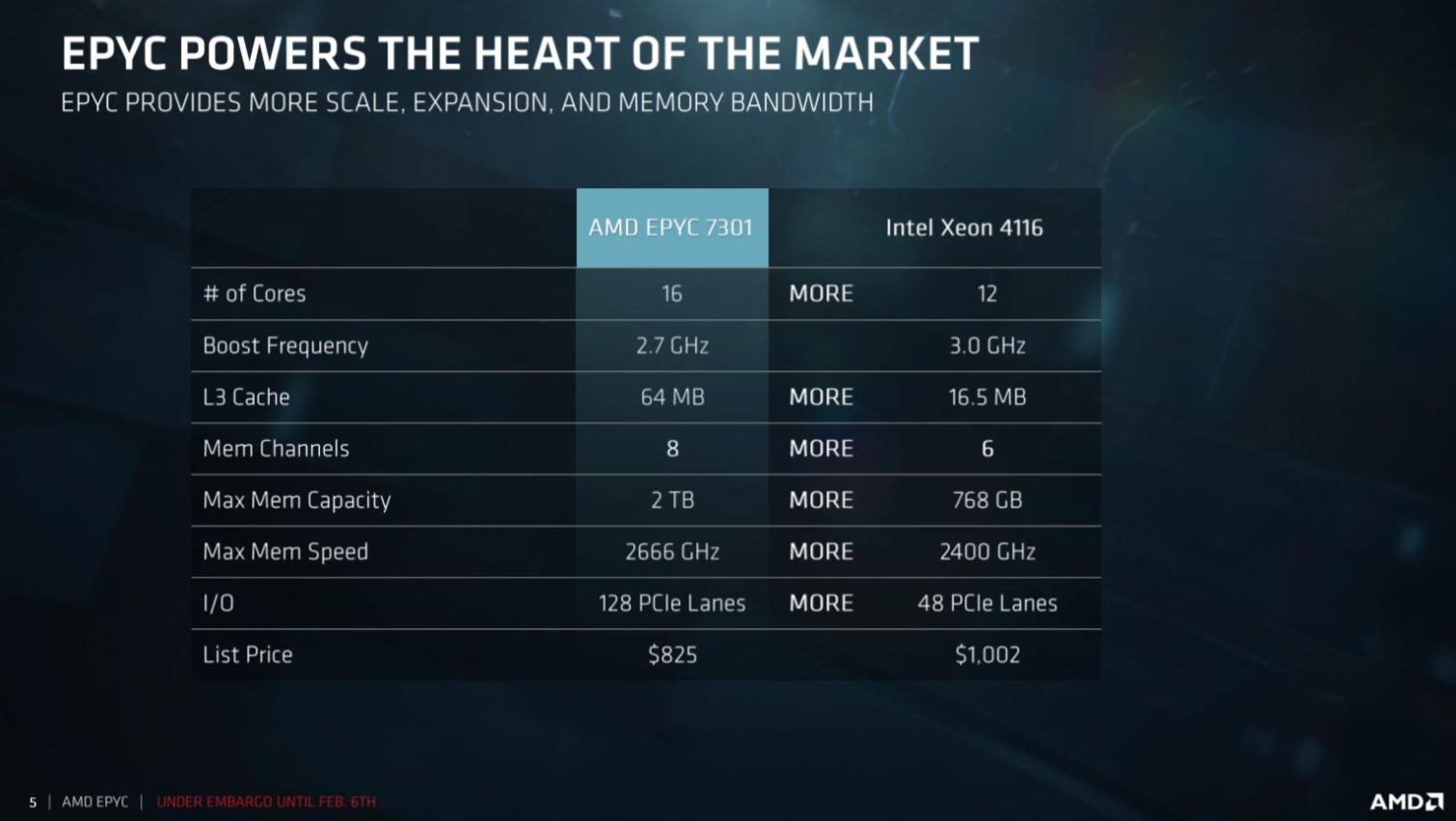
AMD also shared benchmark and pricing data comparisons against Intel's Skylake-derived Xeon Scalable processors. These benchmarks drive at AMD's core messaging that its single socket servers can outperform Intel's dual-socket servers in some scenarios, and often at a more attractive price point. These figures are derived from SPECrate 2017_int_rate tests due to the industry's move to the newer version of the benchmark (from the 2006 version). AMD generated these results before the Spectre and Meltdown vulnerabilities were patched, so they don't reflect the impact of the security patches.
Get Tom's Hardware's best news and in-depth reviews, straight to your inbox.
AMD tells us that it is working diligently to generate updated results. AMD's EPYC processors are not susceptible to Meltdown. The company has already released patches for Spectre Variant 1 and has issued a reptoline-based patch for Spectre Variant 2 for Zen-based platforms like EPYC. AMD is now working on patches for its older processors.
Intel pointed out in its recent round of benchmarking that AMD hadn't posted many SPEC submissions. These submissions typically filter out from OEMs as they introduce their systems, so now there are several more AMD entries. We've included the test notes in a click-to-expand format below. Notably, AMD generated these results in its labs using the GCC compiler. If given a choice, Intel would probably prefer to use its own compiler.
Dell is already shipping the new PowerEdge 14G servers to early access customers, so detailed documentation is already available online. AMD tells us it has a strong supply of silicon and Dell has a strong inventory of systems ready for shipment. Dell EMC and AMD will unveil the new systems in Beijing today.

Paul Alcorn is the Editor-in-Chief for Tom's Hardware US. He also writes news and reviews on CPUs, storage, and enterprise hardware.
-
bit_user For me, the most exciting part of this is having a Dell server (which we're forced to use at work) that can accommodate a GPU with only one CPU. Their Intel-based servers require you to add a second CPU, which adds quite a bit of cost, as it means you must also double-up the RAM and beef up the PSU.Reply -
bit_user Now that I've said that, I don't (currently) see a way on the Dell website to configure one for a GPU.Reply
Maybe they haven't yet finished testing on that option... or maybe they're just steering GPU users towards their higher-priced, dual-CPU Intel servers for a little while longer.


